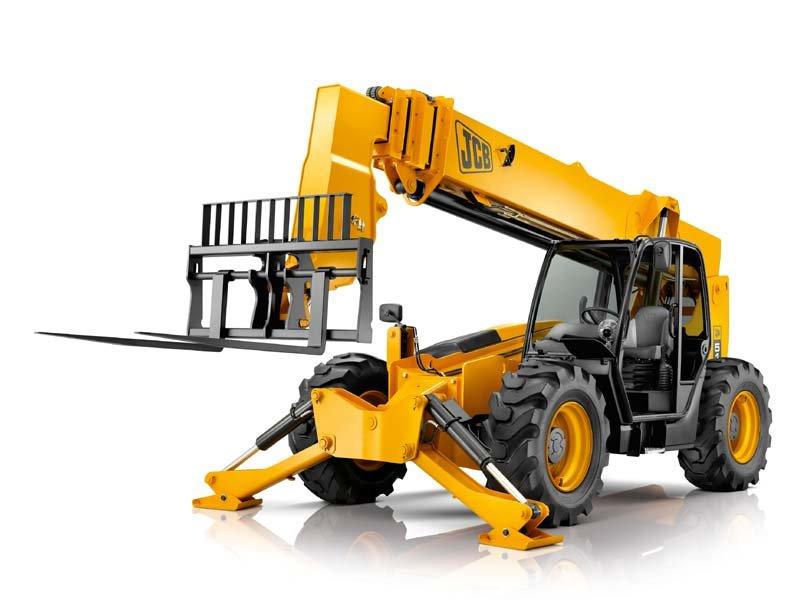Scissor Lift Rental: Safe and Reliable Lifting Solutions
Scissor Lift Rental: Safe and Reliable Lifting Solutions
Blog Article
Optimize Your Budget Plan by Understanding the Prices Connected With Construction Equipment Rentals
Comprehending the full scope of costs connected with building equipment rentals is essential for maximizing your spending plan. What techniques can be employed to effectively take care of these costs and make sure an extra effective rental experience?
Overview of Rental Expenses
When considering construction devices services, understanding the connected expenses is paramount for reliable budgeting and job preparation. Rental expenses can vary substantially based upon several aspects, including tools kind, period of leasing, and place. The initial rental charge typically mirrors the equipment's market need and its connected operational capabilities, affecting the overall expenditure.
Along with the base rental price, ancillary costs may occur, such as transport charges, gas surcharges, and maintenance fees. It is important to account for these extra expenses to accurately assess the overall expense of renting out equipment. Additionally, the rental duration can impact pricing; longer services might get affordable prices, while short-term rentals could incur greater daily costs.

Failure of Rental Prices
A comprehensive understanding of rental rates is necessary for contractors and job managers aiming to enhance their spending plans. Rental prices for building and construction tools usually consist of a number of parts, consisting of base rates, time-based charges, and usage charges.
Base prices are the core costs related to the service of the tools, typically established by the type and size of the machinery. These prices can differ considerably, affected by elements such as devices demand, availability, and regional market fads. Time-based fees, which may be daily, weekly, or monthly, serve to fit various job timelines and rental durations.
Furthermore, rental prices may consist of use costs, which are suitable when devices is used past a defined limit, making certain that the rental business can make up damage. Seasonal need fluctuations can additionally affect rental rates, with peak building and construction periods generally regulating higher costs.
Moreover, understanding the rental business's policies regarding upkeep and insurance can provide additional insight into the total expense structure. By examining these elements, contractors can make enlightened decisions, ensuring the option of rental devices straightens with both task requirements and spending plan restraints.
Additional Costs to Think About
Comprehending the details of added costs is vital for service providers to manage their total service costs efficiently. Beyond the common rental rates, different extra fees can dramatically affect the overall expense of devices rental. These charges commonly include delivery and pickup charges, which can differ based upon range and logistics associated with moving the equipment to and from the task website.
Additionally, some rental companies may enforce fuel surcharges if the equipment is returned with less gas than when rented out. It is also vital to recognize potential cleansing costs, specifically for specific equipment that requires thorough upkeep after usage.

Thoroughly examining the rental arrangement and clarifying these extra charges in advance can aid professionals ensure and avoid unforeseen costs that budgets continue to be undamaged throughout the project lifecycle.
Maintenance and Repair Service Expenses
Routine repair and maintenance costs are frequently ignored aspects that can dramatically influence the total expense of construction equipment rentals. When renting tools, it is crucial to take into consideration not only the rental charges however additionally the prospective expenses connected with keeping the machinery in optimal operating problem.
Many rental companies include fundamental maintenance as part of the rental agreement; nonetheless, extra substantial repair services or unexpected break downs can cause additional expenses. It's necessary to examine the rental contract thoroughly to understand what maintenance solutions are covered and what responsibilities drop on the occupant.
Moreover, devices that is not well-kept can bring about ineffectiveness at work website, possibly triggering hold-ups and boosting task costs. To alleviate these risks, it is advisable to conduct normal assessments and keep open communication with the helpful hints rental provider regarding any type of problems that arise throughout usage.
Insurance Policy and Obligation Prices
Insurance policy and responsibility prices are important components that can substantially impact the total cost of construction equipment leasings (mini excavator rental). These prices make certain that both the rental business and the customer are secured from potential economic losses emerging from mishaps, damages, or burglary throughout the rental duration

Additionally, customers ought to know any kind of deductibles or exclusions in the insurance plan, as these can affect potential out-of-pocket costs. Recognizing the conditions of any kind of insurance policy protection is vital to avoid unexpected prices. Ultimately, budgeting for insurance policy and liability expenses can aid make sure a smoother rental experience and secure versus financial risks related to building and construction projects.
Conclusion
In conclusion, an extensive understanding of the prices related to construction equipment rentals is essential for efficient budget administration. By analyzing rental prices, added fees, maintenance expenses, and insurance coverage organizations, individuals and demands can lessen unforeseen expenses. This critical method not only enhances cost-effectiveness but additionally guarantees that tasks proceed smoothly and successfully. Eventually, notified decision-making relating to equipment services adds to the general success of building ventures.
Rental prices can vary considerably based on numerous factors, including equipment type, period of leasing, and place (scissor lift rental). The rental period can affect prices; longer leasings might qualify for reduced prices, while short-term rentals may incur higher day-to-day fees
By conducting complete research and involving with respectable rental companies, service providers can properly navigate this article the complexities of rental pricing, ultimately optimizing their monetary sources.
Past the conventional rental rates, various auxiliary charges can dramatically impact the complete price of equipment leasing. Rental companies frequently supply liability insurance that covers injuries to third events or damages to property, while equipment damage insurance policy can cover the cost of repair work or substitute if the rented equipment is damaged.
Report this page